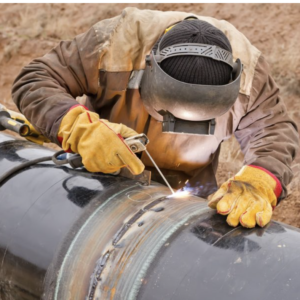A complete shutdown of the Colonial Pipeline, which supplies refined products from Texas up the East Coast to New York, should have been a wake-up call for the critical need for more pipeline infrastructure. We never think about the process necessary to energize our daily routine–until that routine gets sidetracked.
This is top of mind for me, however. After a year of lockdowns, not being able to see family, and the extreme disruption caused to our working lives and the overall economy, simple conveniences should no longer be taken for granted.
When you flip the switch, seldom do people acknowledge the sequence of events that take place in order for that lightbulb to power on.
This reality became magnified by the shutdown of the Colonial Pipeline and the inadequate amount of energy infrastructure in our country. People of all political beliefs have been calling for energy independence for decades; but until we develop the necessary infrastructure to transport these products to market efficiently and safely, we will forever fall short of those goals.
Pennsylvania is the second-largest producer of natural gas in the country but falls far short of the pipeline infrastructure needed to connect production with the end consumer. Pipelines are the safest means to transport energy resources as highlighted by President Joe Biden’s energy secretary, Jennifer Granholm recently.
The Mariner East Pipeline spans over 300-miles, providing energy from western Pennsylvania to the Marcus Hook Industrial Complex in Delaware County. Propane, ethane, and butane, products used every day by Pennsylvanians are transported thanks to this pipeline.
While Mariner East is operating partially, there are still a few sites where construction still must be completed. This project has been delayed by a number of legal and regulatory hurdles, but we can now see the light at the end of the tunnel.
The pipeline developer recently applied for a modification to their construction plans which requires approval by the Pennsylvania Department of Environmental Protection. The original plans were to utilize what is called horizontal directional drilling (HDD) because of the limited impact it would cause to the existing surface structure. While it is one of the industry’s best practices and was confirmed by geological experts, the determination has been made that alternative methods might be environmentally preferable.
The current plan is to install the pipeline at the location near Marsh Creek by digging a trench at the surface, dropping the pipe, and restoring the area. Like an HDD, this is also an industry-wide best practice method for the installation of pipelines, utility lines, and telecommunications. The potential short-term impacts to the local environment such as preventing inadvertent returns of non-toxic clay and a more defined construction timeline are two of the benefits.
The regulatory standards that pipeline developers must comply with have never been more strenuous. It is important to note Mariner’s developer meets and exceeds each and every one of these regulations. They have even gone out of their way to allay concerns from environmental groups and agreed to even more communication and reporting with local authorities and regulators to show yet again their commitment to the local environment and communities.
Energy Transfer is very committed to Pennsylvania. Completing Mariner East is not the end of their investment in the state, but the beginning. The revitalization of the Marcus Hook Industrial Complex is ongoing. The completion of Mariner East will provide producers in Western Pennsylvania with greater access to markets locally, regionally, and beyond. The puzzle cannot be complete with missing pieces, which is Mariner East.
The pipeline has been built by the best trained, highest-skilled workers in Pennsylvania. Using local skilled labor provides greater investment into the local community, but also goes a step further to ensure the pipeline is being built to operate by the safest means possible. At the end of a long workday, these workers are able to eat dinner with their family and sleep in their own bed.
It is now time that regulators allow the project to move forward to completion. The proposal to alter the construction methods has been made to ensure environmental safety and should be supported without further delay. The DEP should approve these modifications.

